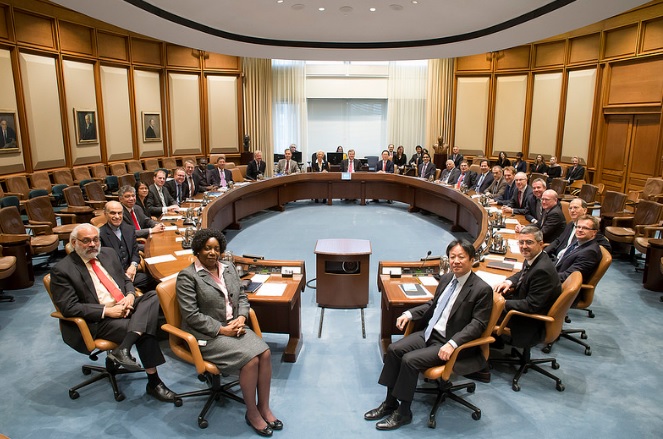Imf.org
The Moroccan authorities have not drawn on the arrangement and continue to treat it as precautionary.
The new government’s economic program is in line with key reforms agreed under the IMF arrangement, such as reducing fiscal and external vulnerabilities while strengthening the foundations for higher and more inclusive growth.
On August 1, 2017, the Executive Board of the International Monetary Fund (IMF) completed the second review under the Precautionary and Liquidity Line (PLL) Arrangement and reaffirmed Morocco’s continued qualification for the PLL.
The two-year PLL arrangement for Morocco in the amount of SDR 2.504 billion (about US$3.42 billion) was approved by the IMF’s Executive Board in July 2016 (see Press Release No. 16/355) and the first review of the arrangement was completed on May 15, 2017 (see Press Release No. 17/169).
The Moroccan authorities have not drawn on the arrangement and continue to treat it as precautionary. The arrangement will expire on July 21, 2018.
Following the Executive Board’s discussion, Mr. David Lipton, First Deputy Managing Director and Acting Chair, said:
“Morocco’s sound economic fundamentals and overall strong track record of policy implementation have contributed to a solid macroeconomic performance in recent years. External imbalances are projected to narrow in 2017 and international reserves to remain at a comfortable level. Fiscal developments are positive, with the budget deficit projected to narrow further in 2017 due to strong revenue performance and contained spending. Growth is expected to rebound in 2017 and accelerate gradually over the medium term, subject to improved external conditions and steadfast reform implementation. But this outlook remains subject to domestic and external downside risks.
In this context, Morocco’s Precautionary and Liquidity Line (PLL) arrangement with the Fund continues to serve as useful insurance against external risks and supports the authorities’ economic policies.
“The authorities are committed to sustaining sound policies. The new government’s economic program is in line with key reforms agreed under the PLL arrangement, such as reducing fiscal and external vulnerabilities while strengthening the foundations for higher and more inclusive growth.
“Building on progress made in recent years, further fiscal consolidation is needed and should be based on accelerated tax reforms, sound public financial management at the local level as part of fiscal decentralization, comprehensive civil service reform, enhanced financial oversight of state owned enterprises, and increased efficiency of social programs and public investment projects.
“Adopting the central bank law and continuing to implement the 2015 Financial Sector Assessment Program recommendations will help strengthen the financial sector policy framework. Moving toward a more flexible exchange rate regime, underpinned by a well communicated strategy, will help preserve external competitiveness and enhance the economy’s capacity to absorb shocks.
“Finally, raising potential growth and making growth more inclusive, by reducing persistently high unemployment levels, especially among the youth, and increasing female labor participation, will require further measures to improve the business climate, governance, competitiveness, access to finance, the labor market, and regional disparities.”







